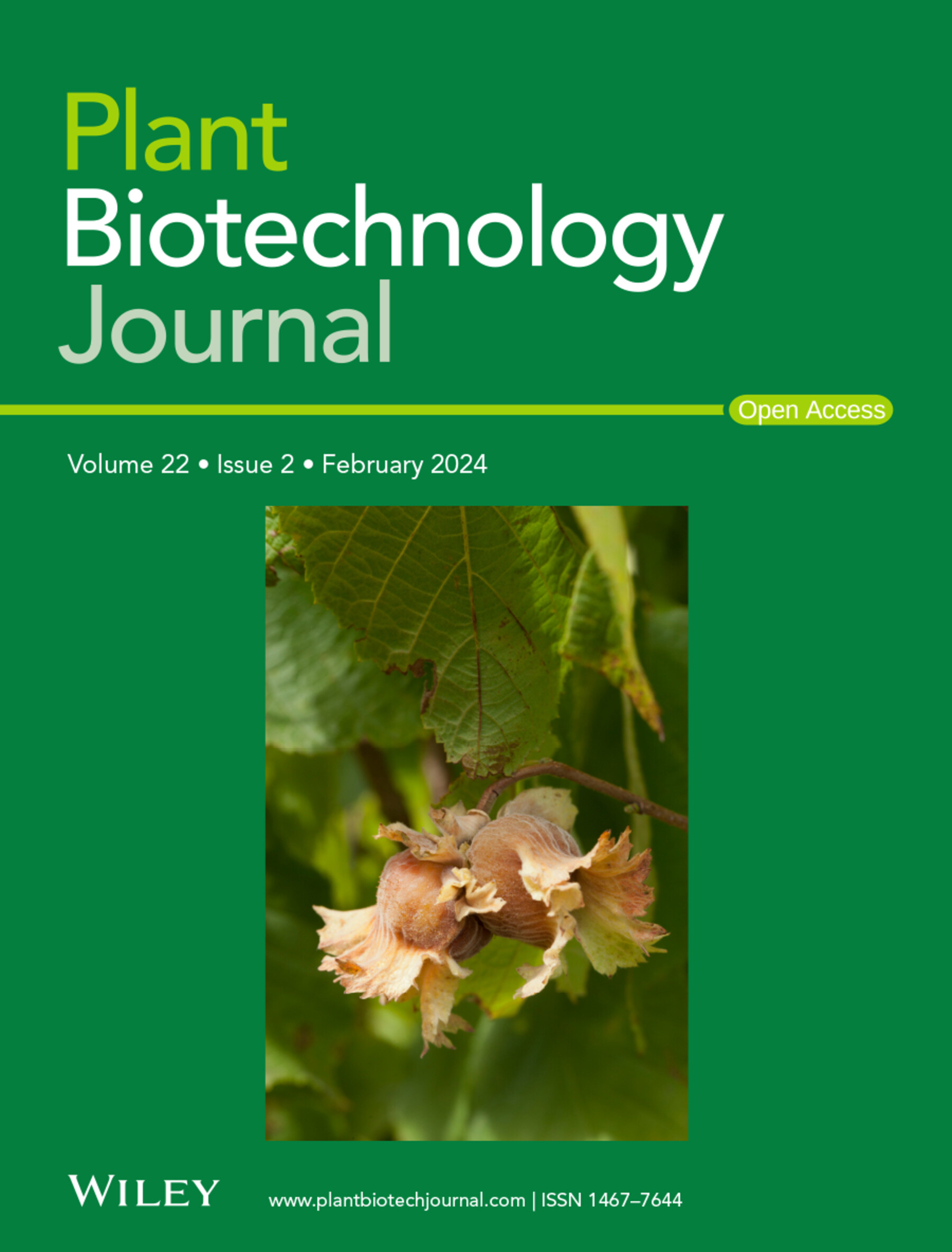ZmMYB127 Modulates Maize Kernel Texture and Size by Integrating the Synthesis of Starch, Zein Proteins and Auxin.
IF 10.5
1区 生物学
Q1 BIOTECHNOLOGY & APPLIED MICROBIOLOGY
引用次数: 0
Abstract
Kernel texture is an important agronomic trait that determines the end-uses of maize kernels and affects their integrity at harvest and susceptibility to pests and diseases. The ratio of the vitreous endosperm (RVE) is the key index for assessing kernel texture, and identifying key genes involved in its formation is crucial for maize breeding. Here, through genome-wide association study (GWAS), haplotype analysis and transgenic kernels phenotyping, we characterised ZmMYB127, an endosperm-specific R2R3-MYB transcription factor, which positively regulates vitreous endosperm (VE) formation. ZmMYB127 is preferentially expressed in VE cells during the filling stage and antagonistically regulates zein protein and starch synthesis in the endosperm. Notably, ZmMYB127 interacts with OPAQUE2 (O2) to synchronously transactivate genes encoding α-zein proteins and interacts with prolamin-box binding factor 1 (PBF1) to additively suppress genes involved in starch synthesis, thereby governing kernel texture. Moreover, ZmMYB127 negatively regulates genes involved in indole-3-acetic acid (IAA) synthesis in the endosperm, affecting endosperm development and size, thereby linking the function of ZmMYB127 to kernel size. In conclusion, our study unravels the transcription factor ZmMYB127 that modulates kernel texture and size by integrating regulation of starch, zein and auxin synthesis pathways in maize endosperm. Additionally, our findings provide valuable genetic resources for breeding or engineering maize varieties with improved kernel texture and quality.ZmMYB127通过整合淀粉、玉米蛋白和生长素的合成来调节玉米籽粒结构和大小。
籽粒结构是一项重要的农艺性状,它决定了玉米籽粒的最终用途,并影响籽粒在收获时的完整性和对病虫害的易感性。玻璃体胚乳比例是评价玉米籽粒质地的关键指标,确定其形成的关键基因对玉米育种具有重要意义。本研究通过全基因组关联研究(GWAS)、单倍型分析和转基因籽粒表型分析,鉴定了一种具有胚乳特异性的R2R3-MYB转录因子ZmMYB127,该转录因子正调控玻璃体胚乳(VE)的形成。ZmMYB127在灌浆期优先在VE细胞中表达,并拮抗胚乳中玉米蛋白和淀粉的合成。值得注意的是,ZmMYB127与OPAQUE2 (O2)相互作用,同步反激活编码α-玉米蛋白的基因,并与prolamin-box binding factor 1 (PBF1)相互作用,加性抑制淀粉合成相关基因,从而控制籽粒质地。此外,ZmMYB127负调控胚乳中吲哚-3-乙酸(IAA)合成相关基因,影响胚乳发育和大小,从而将ZmMYB127的功能与籽粒大小联系起来。总之,我们的研究揭示了通过整合玉米胚乳中淀粉、玉米蛋白和生长素合成途径来调节籽粒质地和大小的转录因子ZmMYB127。此外,我们的研究结果为改良玉米籽粒结构和品质的育种或工程品种提供了宝贵的遗传资源。
本文章由计算机程序翻译,如有差异,请以英文原文为准。
求助全文
约1分钟内获得全文
求助全文
来源期刊

Plant Biotechnology Journal
生物-生物工程与应用微生物
CiteScore
20.50
自引率
2.90%
发文量
201
审稿时长
1 months
期刊介绍:
Plant Biotechnology Journal aspires to publish original research and insightful reviews of high impact, authored by prominent researchers in applied plant science. The journal places a special emphasis on molecular plant sciences and their practical applications through plant biotechnology. Our goal is to establish a platform for showcasing significant advances in the field, encompassing curiosity-driven studies with potential applications, strategic research in plant biotechnology, scientific analysis of crucial issues for the beneficial utilization of plant sciences, and assessments of the performance of plant biotechnology products in practical applications.
 求助内容:
求助内容: 应助结果提醒方式:
应助结果提醒方式:


